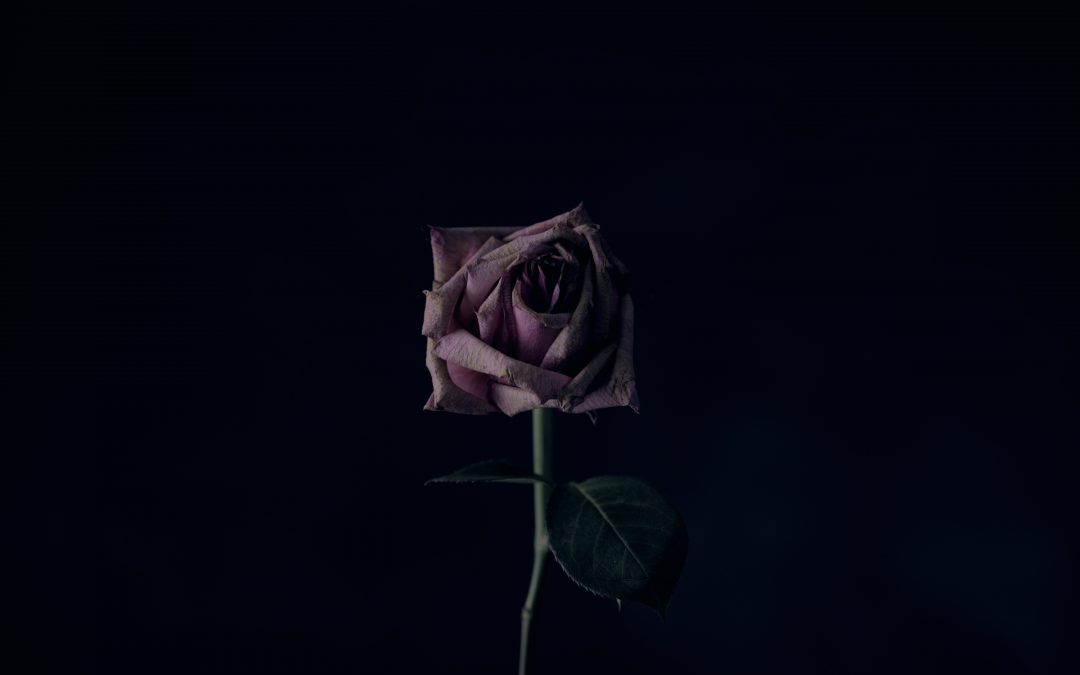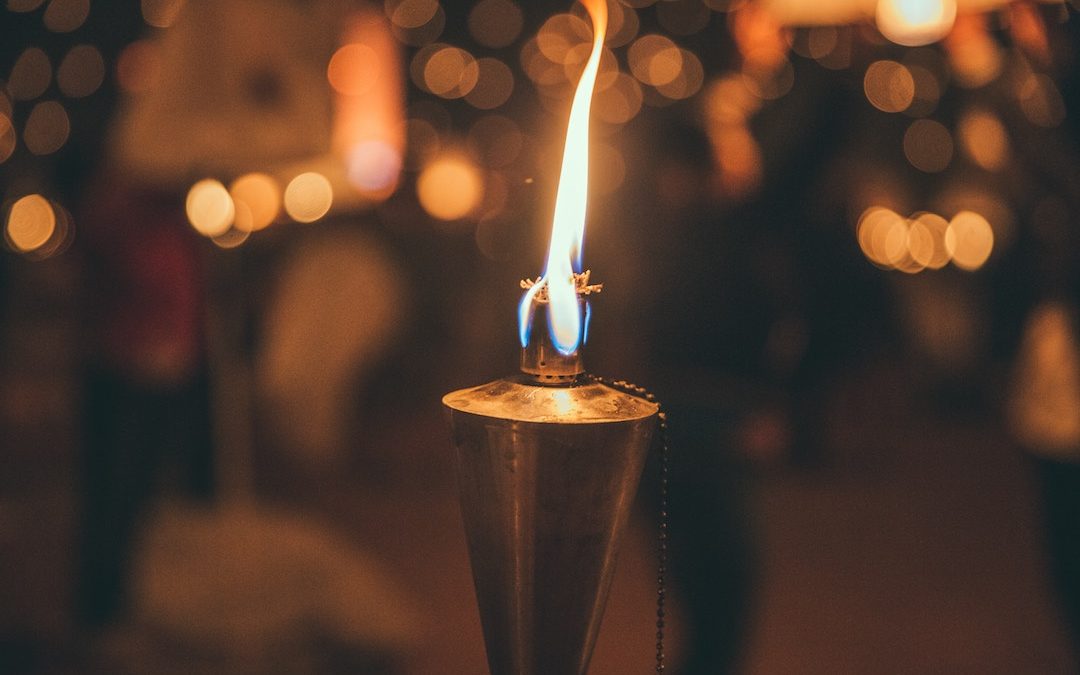
by Rachel Toalson | Poetry
You are familiar with the ways
some of them think
it’s all in your control
the darkness represents
a failure in your life
you’ve been melodramatic
as long as they’ve known you
there are always worse circumstances
than your own but some people
(meaning you)
cry over spilled milk.
Sometimes you accidentally
let their voices too far
inside.
This is how
you forget it’s not your fault.
This is an excerpt from This is How You Live. For more of Rachel’s poems, visit her Reader Library page, where you can get a few volumes for free.
(Photo by Sharon McCutcheon on Unsplash)

by Rachel Toalson | Poetry
What about the silences?
It was an odd question,
what about the silences,
and I wasn’t entirely sure
how to answer.
The silences are long.
The silences are still.
The silences are…
silent.
Yes, but are they
comfortable? she said,
and this time I understood—
because I’d been in
uncomfortable silences before,
and they were awkward, uneasy,
frightening at times.
No, I said,
the silences are
lovely pockets of time
when I can hear myself think
and he can hear himself not think
and we are separate yet connected.
Then you know, she said.
Silences tell you
everything about
a relationship.
So measure them
well.
This is an excerpt from Textbook of an Ordinary Life: poems. For more of Rachel’s poems, visit her Reader Library page, where you can get a few volumes for free.
(Photo by rawpixel on Unsplash)

by Rachel Toalson | Poetry
It’s hard to say what inspires.
Sometimes it is the gentle light
of a morning, a pale glowing
in the east that makes the fog
in the air, left over
from the night,
shimmer.
Sometimes it is the curve
of a tiny cheek, turned toward
the sleepy light,
marked with fluttering lashes.
Sometimes it is a word,
a picture, wisdom someone
shared a hundred years ago.
They all open
the cascade of creativity,
marrying a pen to a page
so another story is born.
This is an excerpt from Textbook of an Ordinary Life: poems. For more of Rachel’s poems, visit her Reader Library page, where you can get a few volumes for free.
(Photo by Art Lasovsky on Unsplash)

by Rachel Toalson | Poetry
9:00:04
When the hour is
late, I find myself thinking
of dangerous things.
9:00:05
I know the hour
isn’t exactly late—but
this is late for me.
9:00:07
What if there is something
more to this catch in my
throat? What if it’s bad?
9:00:08
What if those allergies
are not just allergies?
What if it is worse?
9:00:09
What if the doctors
aren’t able to cure my
brother? What if he dies?
9:00:10
What if something happens
to our car? How will we
run all the errands?
9:00:11
How will we work? How
will we recover from a
setback like that one?
9:00:12
What if I never
publish another book? What
if I can’t keep up?
9:00:13
What if one of my
children is lost, hurt, damaged,
bullied, broken, killed?
9:00:14
It only takes a
few seconds to run through all
the scenarios.
9:02:57
Anxiety runs
cold, hot, numb, excruciating—
and always there.
9:03:36
I turn my thoughts to
happier things; it’s like turning
a ship around.
9:03:59
I think about love—
the beauty of loving
another and the world.
These are excerpts from The Book of Uncommon Hours, a book of haiku poetry. For more of Rachel’s poems, visit her Reader Library page, where you can get a few volumes for free.
(Photo by Martin Castro on Unsplash)

by Rachel Toalson | Poetry
i
Why do we do what we do?
How can we act differently?
What keeps us from doing the unthinkable?
Can we replicate more of it?
ii
What causes anger?
What does hatred have to teach us?
What have we done with our expectations for being human?
iii
What does our digital world do to our emotional stability?
What can we do to practice empathy?
iv
Who are you?
Who am I?
What links us together?
v
What is the relationship between what I want and what you want?
How do we both get what we want?
vi
How do we find our way in a world of terror?
How do you find courage to be a parent?
How do you parent without damaging your children?
What would cause a mother to strike her child?
How do you teach your children about love, mercy, justice, empathy, tolerance, truth, hope, wonder, dreams, intelligence, relationships?
vii
How do we improve ourselves?
How do we improve our society?
How can we expect more?
How can we expect less?
What is tolerance?
How do you make concessions without losing yourself?
viii
What is the shape of this world?
How could we shape it differently?
What causes a person to pick up a gun and shoot a Russian ambassador because of a political preference?
How might we step in the path of that bullet and stop it from meeting its intended mark?
Would we find it imperative?
ix
What kind of love is this?
x
How do we create a better society, a new knowledge, without asking a whole world of new questions?
This is an excerpt from Textbook of an Ordinary Life: poems. For more of Rachel’s poems, visit her Reader Library page, where you can get a few volumes for free.
(Photo by Ousa Chea on Unsplash)

by Rachel Toalson | Poetry
It is the words that stay
long after the faces have faded;
the words are the treasures,
of such great worth that
when used poorly they do not
simply fade into a background
but stand like sentries
at the entrance to a heart,
beating out all other words
intended for good
Grow a thicker skin, they said,
but, alas, I cannot. This is me,
the thinnest skin around,
everything sinking in like it
holds the key to me, or, rather,
locks the truth in a dark dungeon
And so it is not easy to simply
grow a thicker skin
How does one do such a thing?
How does one put on dismissal,
become someone they were not
only moments before,
ignore the ones who
slash and scrape?
They say they cannot
teach me anything,
that the words must be
burned in a blaze,
but this, too, is not so easy
The words are my blaze
burning away my pieces,
charring sacred spaces,
consuming who I was
But perhaps this is not
so awful a purpose at all
It is only in the burning
that one rises from the ashes
in a splendid newness,
with a stronger construction,
as a more secure human being
And so
I let
them
burn
This is an excerpt from Textbook of an Ordinary Life: poems. For more of Rachel’s poems, visit her Reader Library page, where you can get a few volumes for free.
(Photo by Austin Neill on Unsplash)






